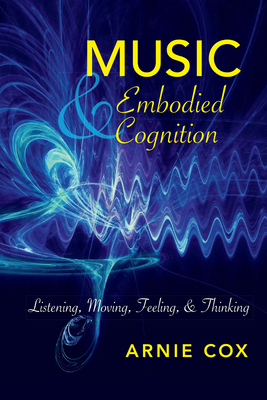Music and Embodied Cognition: Listening, Moving, Feeling, and Thinking

Music and Embodied Cognition: Listening, Moving, Feeling, and Thinking
Taking a cognitive approach to musical meaning, Arnie Cox explores embodied experiences of hearing music as those that move us both consciously and unconsciously. In this pioneering study that draws on neuroscience and music theory, phenomenology and cognitive science, Cox advances his theory of the "mimetic hypothesis," the notion that a large part of our experience and understanding of music involves an embodied imitation in the listener of bodily motions and exertions that are involved in producing music. Through an often unconscious imitation of action and sound, we feel the music as it moves and grows. With applications to tonal and post-tonal Western classical music, to Western vernacular music, and to non-Western music, Cox's work stands to expand the range of phenomena that can be explained by the role of sensory, motor, and affective aspects of human experience and cognition.
PRP: 289.33 Lei
Acesta este Prețul Recomandat de Producător. Prețul de vânzare al produsului este afișat mai jos.
231.46Lei
231.46Lei
289.33 LeiIndisponibil
Descrierea produsului
Taking a cognitive approach to musical meaning, Arnie Cox explores embodied experiences of hearing music as those that move us both consciously and unconsciously. In this pioneering study that draws on neuroscience and music theory, phenomenology and cognitive science, Cox advances his theory of the "mimetic hypothesis," the notion that a large part of our experience and understanding of music involves an embodied imitation in the listener of bodily motions and exertions that are involved in producing music. Through an often unconscious imitation of action and sound, we feel the music as it moves and grows. With applications to tonal and post-tonal Western classical music, to Western vernacular music, and to non-Western music, Cox's work stands to expand the range of phenomena that can be explained by the role of sensory, motor, and affective aspects of human experience and cognition.
Detaliile produsului









